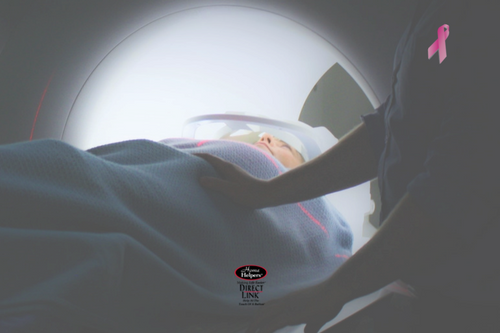When I was in my late teens in the early eighties, my paternal grandmother was admitted to a nursing home with Parkinson’s disease and quite possibly, Alzheimer’s. I had never heard of Alzheimer’s before that time, but soon realized Grandma presented many of the symptoms and characteristics of a patient with this awful disease. My father, being her oldest son, was her power of attorney and knew even more about the decline of her physical health.
He told me to go to the nursing home, see my grandmother and touch the big lump on her right breast. She was not conscious and would not notice me doing so, but he emphasized the importance of knowing what a lump in the breast felt like, especially in a senior woman with breast cancer.
I honored my father’s request and visited Grandma. She was always one of the most important people in my life and it hurt deeply to see her in a diminished physical and mental state. I could see the bulge under her gown, and I touched it. It was a mass the size of a tangerine that felt solid. Her doctor was quite blunt when he said breast cancer would not be the cause of her death, even though she definitely had it.
I reflect on that experience every year when it’s time to think pink! October is Breast Cancer Awareness Month, and it is vital that women (and men) take appropriate steps to detect and prevent this dreaded disease as early as possible, and this includes seniors, too!
Julia Louis-Dreyfus, an actress best known for her roles on Seinfeld and Veep, recently announced through social media that one in eight women will be diagnosed with breast cancer, and she was “the one.” According to the US Centers for Disease Control, 106-118 incidents of breast cancer were reported in Florida in 2014, for every 100,000 people. That is alarming when you consider the sheer numbers based on our population, and Florida was not at the top of the list! Chances are you know someone who is battling, has survived, or has lost the fight against breast cancer. I know I do.
Those at greatest risk for breast cancer are women, but men can also have the disease. Genetics, family history, breast density and chest radiation treatments (for separate conditions or incidents of cancer), are also risk factors beyond your control.
Risk factors you can control:
-Women who give birth to their first child before age 30 are at lower risk.
-Post-menopausal women who use hormone replacement therapy with estrogen and progesterone have an increased risk of breast cancer.
-Women who drink two or more alcoholic beverages a day are at one to one-and-a-half greater risk than women who do not drink.
-Women who are overweight or obese are more susceptible to the disease.
-Women who lactate and breast-feed have a lower risk of breast cancer.
There are physical changes that you can see or feel when you check your breasts, which you should do on a regular basis. They are:
-A lump or thickening in or around the breast and underarm area
-A change in the size or shape of the breast
-A noticeable nipple discharge (not including lactation)
-A nipple that turns inward
-A change in the color or feel of the skin on or near the breast or underarm area
The American Cancer Society recommends women between the ages of 45-54 have an annual mammogram. If you are age 55+, and in good physical health, a mammogram might only be needed every-other year, if risk factors are lower. Of course, every woman and every situation is different. Perhaps, if my grandma had received mammograms, the cancer would’ve been detected and treated, rather than growing into such a large mass.
If breast cancer is detected, or if there are reasons for further examinations, breast ultrasounds, MRI scans, experimental breast imaging, biopsy and other tests may be in order, as well as current treatment options like radiation and chemotherapy. There are also clinical trials underway throughout the country in search of new, successful ways to treat breast cancer.
If you know a senior who has been diagnosed with breast cancer, they may very well need assistance with light housework, meal preparation, or transportation assistance while undergoing treatment. Please give me a call. I am happy to offer a FREE in-home consultation to discuss specific needs and ways our caregivers can lend a hand. I also have numerous resources that can help when breast cancer invades your family. It’s not only a disease that affects the person with the diagnosis, but it deeply affects everyone who loves them.
Home Helpers® proudly serves male and female seniors in Clearwater, Dunedin, Palm Harbor, Safety Harbor, Tarpon Springs, Holiday, New Port Richey, Trinity, Port Richey, Hudson and surrounding areas. Contact me today to learn more about the many services offered through Home Helpers® We are Making Life Easier℠ (727) 240-3059
Source: Centers for Disease Control and Prevention
American Cancer Society

